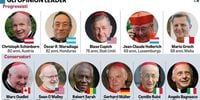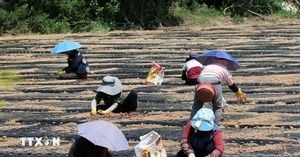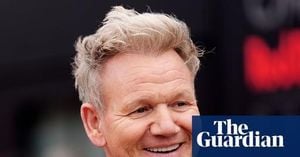Cardinal Angelo Bagnasco, the former Archbishop of Genoa, penned an article reflecting on the legacy of Pope Francis, published in the newspaper La Verità on April 26, 2025. In his piece, Bagnasco emphasized that the Pope's illness and eventual death represent the "synthesis and the apex" of his pontificate. Despite facing serious health challenges, Pope Francis demonstrated remarkable resilience, even delivering the Urbi et Orbi blessing shortly before his passing, which Bagnasco described as a poignant farewell to the world.
Bagnasco characterized Pope Francis as "stubborn," yet he also highlighted the "sweetness of faith" that the Pope embodied. He noted that in today's world, there is a pressing need for tenderness to navigate life with confidence and strength. The cardinal pointed out that the real issue isn't that everyone must eventually die, but rather how many truly live their lives to the fullest.
According to Bagnasco, the teachings of Pope Francis resonate now more than ever, particularly his focus on the importance of the flesh of Christ. He remarked, "Man needs to hear this announcement from the rooftops, as it brings courage and strength." This message, he believes, is vital in addressing the profound existential anxieties faced by many today.
In discussing the future of the Church, Bagnasco argued against reorganizing it like a business. Instead, he suggested that the Church should exemplify how Christ can exist in the world without fear of judgment. He recalled Pope Francis as the "minister of the love of Christ," whose continuous reminders about global poverty resonated powerfully, echoing the words of Jesus and encouraging compassion among people.
As the article concluded, Bagnasco asserted that the legacy of Pope Francis, marked by a faith that is both active and courageous, will endure beyond his death. He expressed confidence that the teachings of the Pope will continue to inspire future generations, reminding the faithful of the singular message of love and service that defines the essence of Christianity.
In a parallel development, the Vatican is currently preparing for the upcoming conclave to elect the next Pope, following the death of Pope Francis. As of April 26, 2025, more than 80 cardinals have gathered in Vatican City, either participating in the rite for the translation of Pope Francis's remains or present within St. Peter's Basilica.
The first general congregation of cardinals after the Pope's death took place on April 25, with approximately 60 cardinals in attendance. This gathering is crucial as it sets the stage for discussions about the future direction of the Church and the qualities desired in the next pontiff.
Among the 135 Cardinal Electors eligible to vote in the conclave is Cardinal Franco Montenegro, who will bring his pastoral experience to the process. The general congregations involve all cardinals, including non-electors, and play a significant role in governing the Church during the period of the vacant see, which begins with the Pope's death and lasts until a new Pope is elected.
As the conclave approaches, discussions around potential candidates are intensifying. Cardinal Robert Sarah is identified as a prominent conservative figure, while Cardinal Oscar Rodríguez Maradiaga represents the more progressive wing. Additionally, influential Italian cardinals, including Bagnasco himself, are expected to play key roles in shaping the outcome of the conclave.
The upcoming conclave will be particularly significant, as it will not only determine the successor to Pope Francis but also reflect the evolving dynamics within the Catholic Church. Observers note that the conclave may be characterized by a lack of dominant factions, with the emphasis likely placed on the candidates' abilities to address pressing global issues such as poverty, migration, and social justice.
As the discussions unfold, the voices of the cardinals will be instrumental in guiding the Church toward a future that remains faithful to its core teachings while also responding to contemporary challenges. The influence of Pope Francis's legacy is expected to loom large over the conclave, as cardinals deliberate on how best to carry forward his vision of a Church that is inclusive, compassionate, and committed to serving the marginalized.
In summary, the reflections of Cardinal Bagnasco on Pope Francis's life and teachings underscore the enduring impact of the late pontiff's message. As the Church prepares for the transition of leadership, the need for a leader who embodies the values of love, service, and social justice is more critical than ever. The upcoming conclave will not only be a moment of mourning but also an opportunity to reaffirm the Church's mission to be a beacon of hope in a world that desperately needs it.




